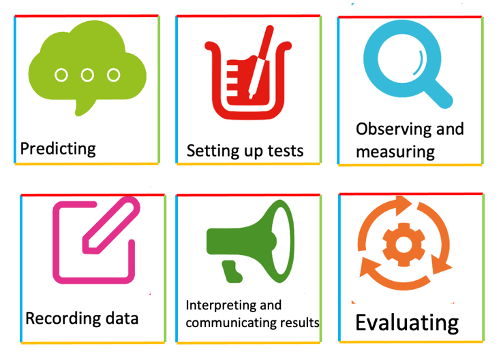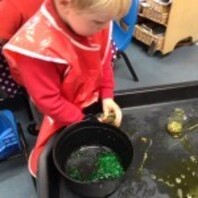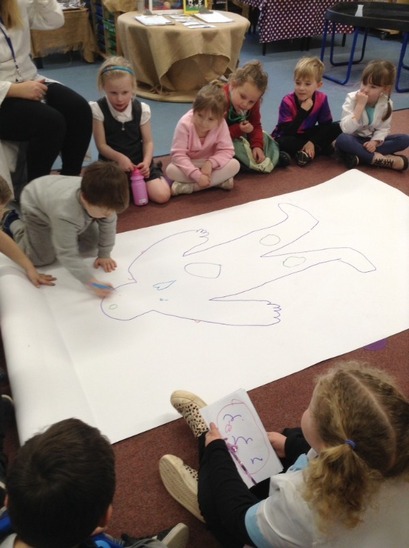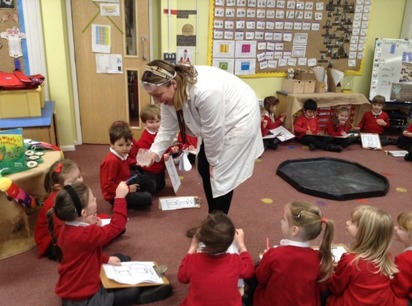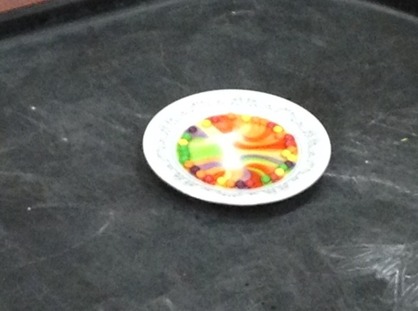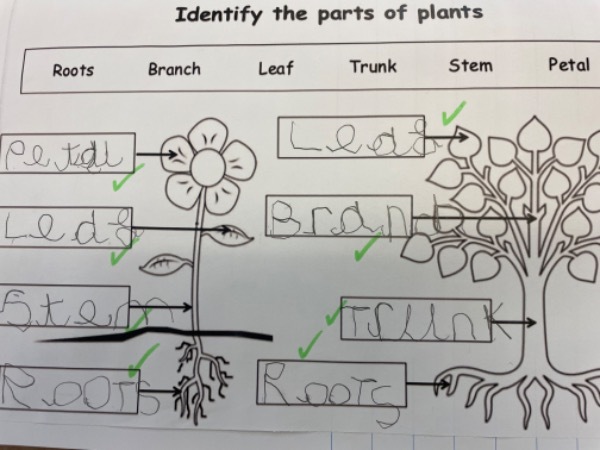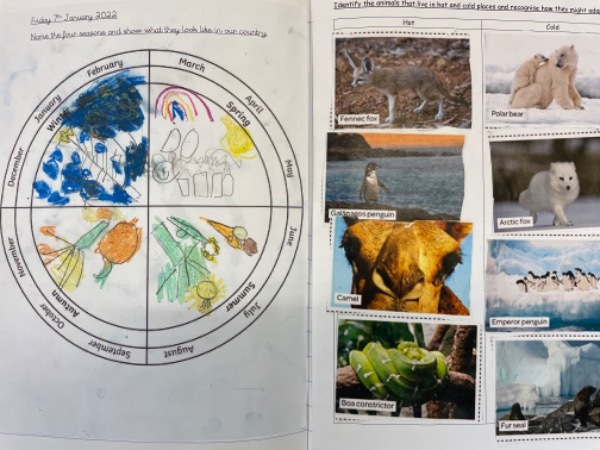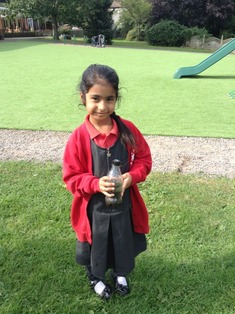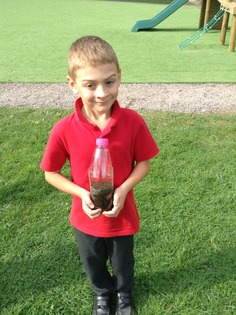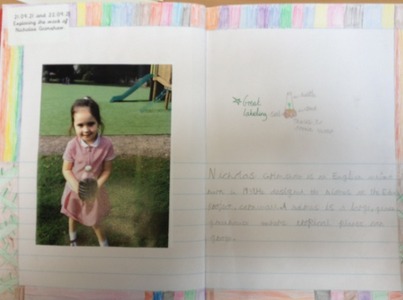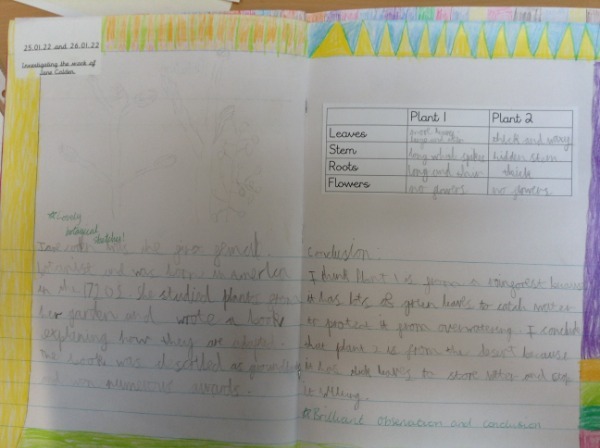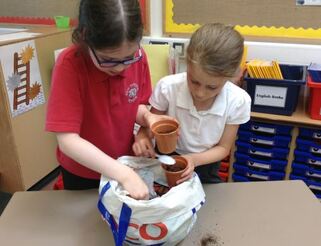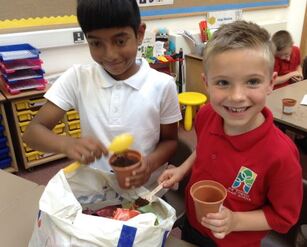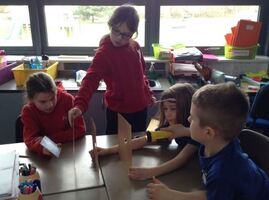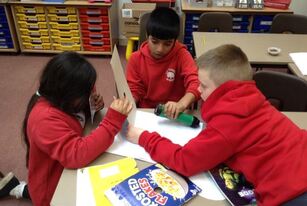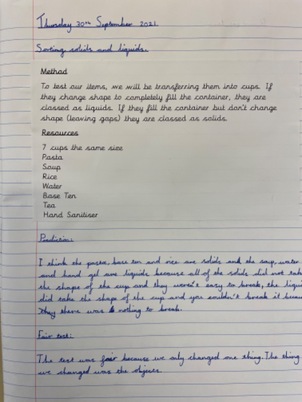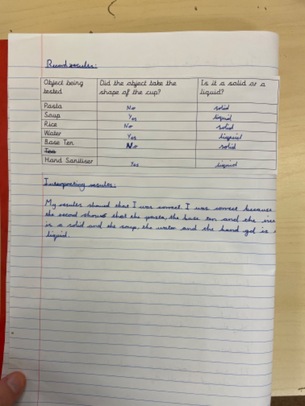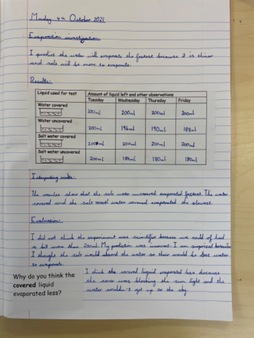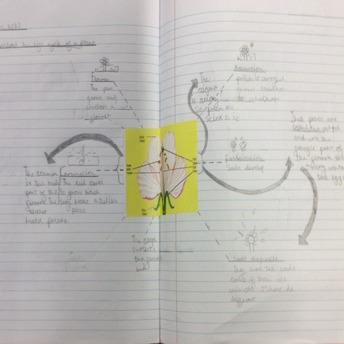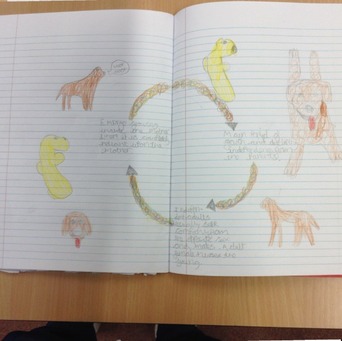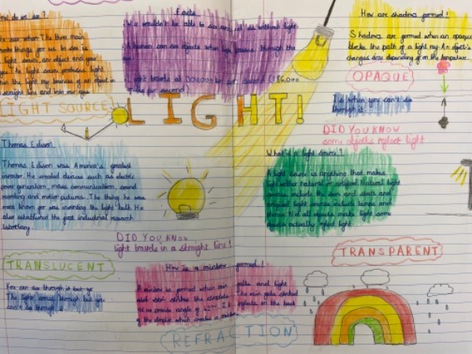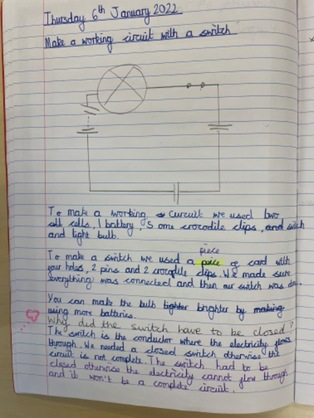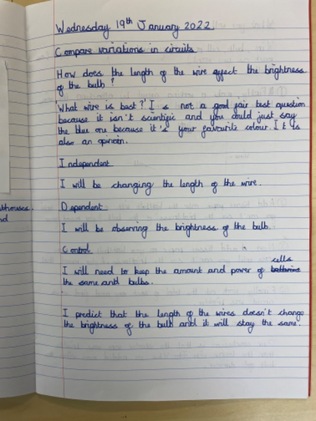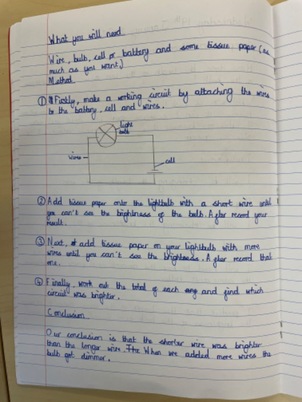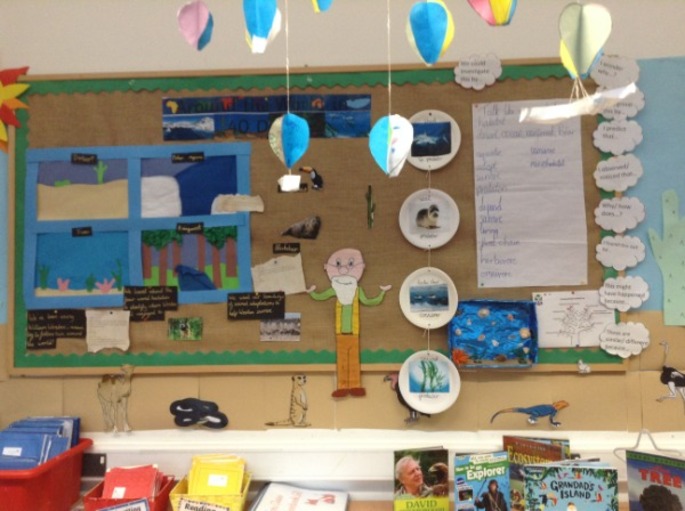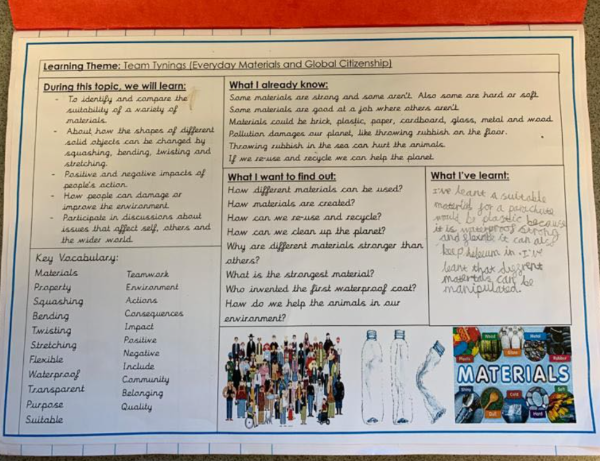Intent
Science teaches children how to question, investigate and explore the world and processes around them. It teaches them key skills that are transferable to every aspect of life and promotes critical thinking. It helps children make sense of the world around them whilst promoting curiosity and exploration.
“Tynings scientists have inquisitive minds and are curious investigators.”
Science at The Tynings
Science is taught within our six themes depending on the unit of work. Themes are designed to reflect the world we live in and teach children about different aspects of their world to help them develop into global citizens. The six themes are: Acceptance and Kindness, The World Today, Saving Our Planet, Different Cultures, Building Relationships and Adventure and Exploration. The unit of work within the theme determines where science objectives are situated, for example, science is heavily linked to the themes of: Saving our Planet, Adventure and Exploration and The World Today but when children are learning about Diwali in Different Cultures a link to science is made through light. Every year group will be starting the year with the theme Acceptance and Kindness where children have the opportunity to learn about plants and growing, a key science objective. Please see the Science Road Map below for more detail on which units and themes science objectives are situated in.
We aim to make science as hands on and practical as possible, always promoting curiosity. Investigations and experiments are used to teach the key science skills and knowledge hand in hand. Science promotes exploring and lessons contain many explorative elements. We promote key investigative skills and focus on using 7 key enquiry skills that develop from EYFS to Year 6. These skills enable Tynings scientist to lead and design comparative and investigative experiments to answer their own questions they may have about their world.
The 7 key enquiry skills:
The Tynings Working Scientifically Tree also allows us as teachers to keep track of the skills we are planning for and help us develop all of these skills.
Within science we also promote key scientific discussion using correct vocabulary. Every year group has key words displayed and sentence stems on display to help the children discuss their scientific explanations. We have also created a vocabulary progression that highlights the key vocabulary the children in each year group should be using.
Exemplar work:
Science at the Tynings is a mix of practical investigation and recording in books. We promote the teaching of theory and skills interchangeably.
EYFS:
EYFS have been having lots of fun learning different concepts to help them understand their world.
We used different materials to make our own slime!
We worked collaboratively to explore the human body.
We explored what happens when you put skittles in water.
Year 1:
Year 1 have been learning all about the different parts of plants and using their knowledge to label key features.
This term they have been learning about seasonal changes and used their knowledge to draw a seasons whell with key characteristics.
Year 2:
Year 2 have been exploring plants and how they grow. We studied Nicholas Grimshaw and made our very own biomes, just like he did!
As we learnt about animals and habitats we explored the work of Jane Colden and had to classify plants based off their adaptations.
Year 3:
Year 3 have been exploring the conditions for plant growth and did their very own planting.
They have also been observing water transportation in plants by using food dye and celery.
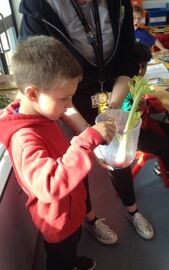
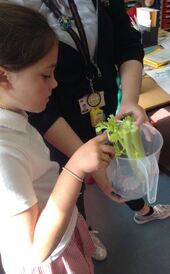
Recently, they have been exploring light and how shadows are formed.
Year 4:
Year 4 have been using their measuring skills to explore states of matter.
Year 5:
Year 5 have been exploring lifecycles of plants and animals and have drawn some lovely diagrams to show their learning.
Year 6:
Year 6 have been looking at light and how light travels and reported their findings in a double page spread.
They have also been looking at making circuits and use their knowledge to make a light house.
Science displays:
Every classroom will have a ‘Topic Board’ where key vocabulary, scientists and learning are presented on here to help scaffold the children’s learning. This is updated throughout the topic to show the learning journey the children have been on.
Assessment in Science:
At the start of every topic children and teachers complete a title page together. This allows teachers to elicit what the children understand and plan accordingly. It also provides the children with a space to share what questions they’d like to answer in the topic. At the end of the topic the children then have a space to record what they have learnt. The road maps below provide an overview of the key topics and skills each year group covers to ensure progression within science.
An example of a Topic title page from a Year 2 book.
Science Week 2022:
Every year we take a week out of our normal topic lessons to explore the theme of British Science Week. This year the theme is ‘Growth' and we will be studying the Tynings Tree. Keep your eyes peeled for updates.
Useful websites to support science at home:
Click here to view explorify.wellcome.ac.uk
Click here to view www.nhm.ac.uk/schools/teaching-resources
Click here to view https://www.jamesdysonfoundation.co.uk/resources/challenge-cards
Click here to view www.sciencekids.co.nz
Click here to view the BBC Bitesize KSI 1 Science
Click here to view the BBC Bitesize KSI 2 Science
Click here to view the NASA Kidsclub website
The Science lead at The Tynings School is Kieran Mead. The governor with responsibility for Science is Jessica Henson. Please do not hesitate to contact with any questions you have regarding Science and The Tynings School.







